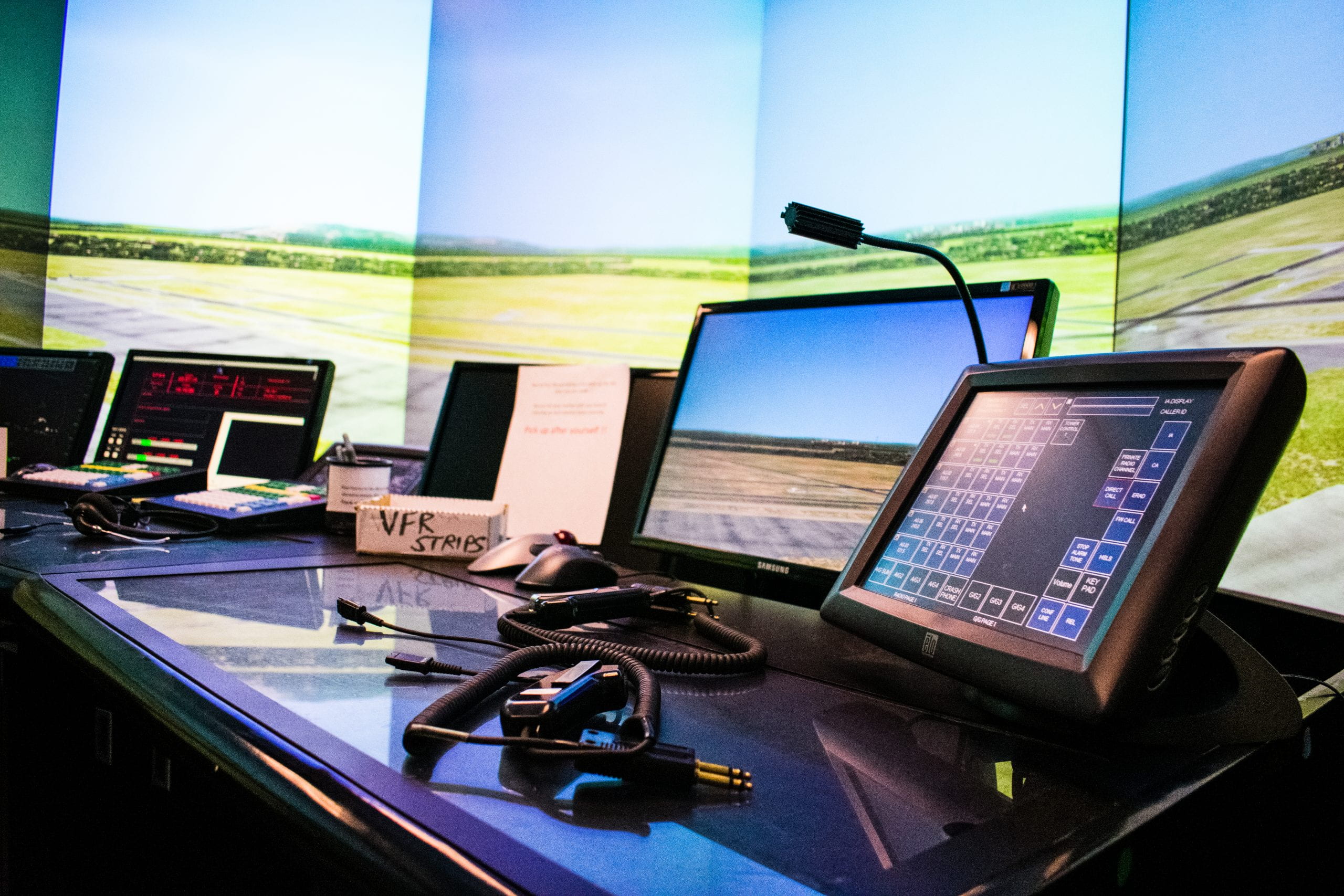Michelle Castano
Editor-in-Chief
Do you have a passion for aircraft transportation?
Did you know that air traffic control is a lucrative career option that reaches new heights?
Team work? Check. Mandatory retirement at age 56? Check.
Receiving a median approximate salary of $130,000 a year? Check.
Broward College has its Air Traffic Control (ATC) program located within its Miramar Center premises.
The ATC program is a two year associates degree program that will help students ascend to the Federal Aviation Administration (FAA) academy in Oklahoma City, Oklahoma.
Scott Gyssler, who is an Emil Buehler flight simulator lab supervisor, Collegiate Initiative Training (CTI)coordinator and adjunct professor emphasizes that air traffic control is an intensely specialized career.
“It’s not like any career you’re going to find in any field. Right now there is an estimated total 14,797 air traffic controllers employed by the FAA in the country; in fact, I don’t know any other field that is such a small group, nationwide,” he said.
According to BC, an Air Traffic Controller works in either an air traffic control tower or a radar facility.
Additionally, from the time an airplane departs the gate until it arrives at the destination gate, air traffic controllers issue instructions to keep it going to its destination and clear of all other aircraft and obstacles.
Gyssler, who was a lead instructor at the FAA academy in Oklahoma for six years came to BC because the CTI program offered at BC offers an associates degree to its fellow students among other reasons.
Within the two year program, there are four main courses.
They include intro to air traffic control, tower, radar, and en-route.
Aside from lectures and quiz taking, aspiring students get to tap into their tactical learning ability.
They get to apply their commands and problem solving abilities in a state-of-the-art simulation lab.
The Emil Buehler flight simulator has an estimated $3 million worth of built in equipment, which resembles the facility within the Federal Aviation Administration Academy.
“The simulator is the ultimate video game,” said Gyssler.
Kenyatta Richardson, Buehler flight simulator lab assistant enjoys working with students and encourages students to succeed within the ATC realm.
Originally, Richardson was an aspiring pilot flying out of North Perry International Airport (next to South Campus).
He realized that flying was too expensive, therefore deciding to switch his area of expertise to air traffic control.
“Even from the beginning, I loved air traffic control. It’s a rewarding career and once you get hired from the FAA, you are able to make a substantial amount of money,” he said.
Richardson is the winner of the Unsung Hero Award, given to him by Student Life at BC and has proven to be asset to not only the Air Traffic Control program, but the whole college itself.
According to Gyssler, the six students that BC has sent out to the FAA academy have all graduated.
Considering that the graduation rate at the academy is about 60 percent, it’s considered a success story.
“What we are doing here, is not only providing students with an education and associates degree, we are preparing students for what they need in order to be successful at the FAA academy… And that’s the key. Because is you don’t make it through the academy, you don’t have a job,” said Gyssler.
Do you have what it takes to be an air traffic controller?
You might.
According to the Civil Aeronautical Medical Institution (CAMI), since 1950, this institution has been trying to figure out what exactly makes an air traffic controller.
Is it more math reasoning, memorization or problem solving?
They have yet to figure it out.. So in other words, don’t knock it ’til you try it.
Brittney Phillips, who is an air traffic controller at Miami International Airport lists her career pros as being a rewarding career with benefits and retirement. Phillips’ cons consist more into emotional matters such as stress, anxiety and the [potential to be the last person talking to a pilot as a plane goes down].
This all stems down to making precise and calculated decisions that can ripple and affect certain outcomes.
For further information, email Gyssler at sgyssler@broward.edu or call 954-201-8663.
The sky is the limit.
castm46@mail.broward.edu
Photo: Air traffic control Emil Buehler flight simulator at the BC Miramar Center. Jovan Subrath/The Observer
